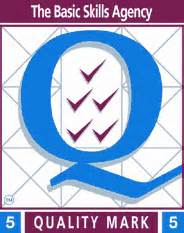The Governing Body
Governors provide challenge and support with a focus on three core strategic functions:
-
Ensuring clarity of vision, ethos and strategic direction;
-
Holding the headteacher to account for the educational performance of the school and its pupils;
- Overseeing the the financial performance of the school and making sure its money is well spent.
All governors of Catholic maintained schools have legal rights and responsibilities which ensure that they safeguard and promote their school’s denominational character.
These rights and responsibilities have been recognised by Government as central to the continuing success of Catholic education. The following are key aspects of the governing body’s legal duties in voluntary aided schools relating to their religious character.
- Appointment of Teachers
- Admissions
- The Curriculum
When a school is inspected by Ofsted, its governing body will be required to show evidence that governors conform with their three core functions. In the work that they do, a governors’ essential focus is on:
- Setting vision, ethos and strategic direction
- Holding the headteacher and school management to account
- Asking the right questions
- Being aware of the importance of objective data and their sources
- Overseeing financial performance
- Setting policies, targets and priorities for achieving those objectives
- Monitoring performance and progress towards those objectives
- Reviewing achievements against the set aims and objectives
- Enabling better governance through training, review and planning
Another aspect of the governors role has traditionally been referred to as being a ‘critical friend’ of the school whereby in addition to the duties laid out above governors can and should also:
- Offer support
- Provide constructive advice
- Act as a sounding board - for the headteacher’s ideas
- Give a second opinion on proposals - which includes asking questions and challenging assumptions
- Help in arriving at the best solution - to further the best interests of the school
The list below (which of course is not exhaustive) is a further exemplar of the role of the governor and shows that the role focuses not on the operational aspects of how the school is run day-to-day – that is the head teacher’s responsibility – but on the strategic direction of the school.
|
Governing bodies do: |
Governing bodies don’t: |
|
Set the overall budget for the school |
Inspect the school |
| Decide on the level of pay for the school’s teachers | After visiting the school, report back on the quality of teaching |
|
Decide on the number of staff |
Authorise all expenditure |
| Help to decide the priorities for improving the school when the school improvement plan is being drawn up | Decide on how pupils are taught different subjects |
| Ensure the National Curriculum is taught to all pupils | Have the right to exclude a pupil |
|
Set targets for pupil achievement |
Write the school’s policies on their own |
| Compare the performance of their school to similar schools | ‘Rubber stamp’ recommendations from the head teacher |
|
Receive information about the quality of teaching in the school |
Automatically approve all apologies sent by governors |
| Have a published strategy for dealing with parental complaints and concerns | Write the OfSTED Action Plan |
|
Ensure health and safety issues are addressed |
|
|
Set the times of school sessions |









